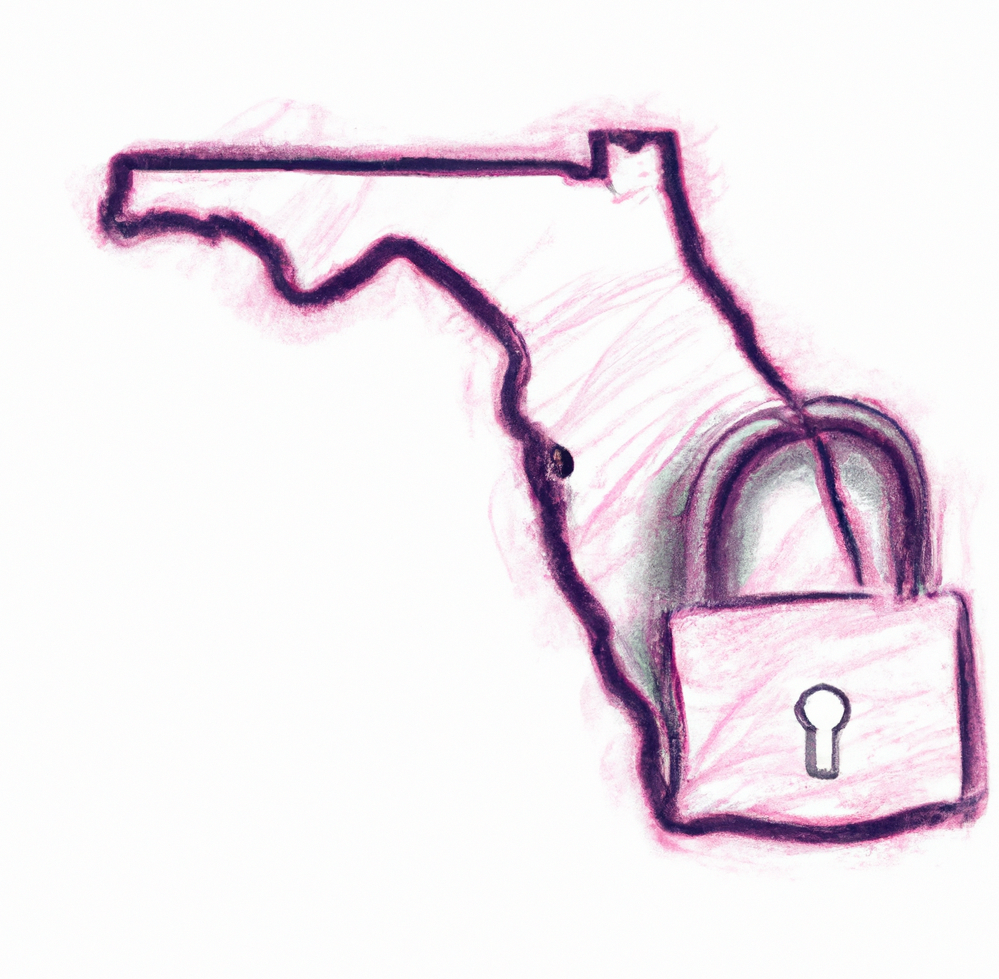Navigating the legal landscape can be complex, especially when it comes to understanding the proposal for settlement Florida. This powerful tool allows parties in a civil dispute to resolve their issues before trial, potentially saving time, money, and stress. Are you prepared to maximize your success and minimize your risks when dealing with this legal mechanism?
In this blog post, we will explore the ins and outs of the proposal for settlement Florida, discussing its legal framework, process, and real-life examples. We will also provide valuable tips on crafting a compliant proposal, timing considerations, insurance options, and seeking legal guidance.
Key Takeaways
- Understand Florida’s Proposal for Settlement and its key differences from an Offer of Judgment.
- Adhere to legal requirements when crafting a compliant Proposal for Settlement, and consider insurance options available in the state.
- Seek legal guidance before deciding whether to accept or reject a settlement offer, taking into account timing considerations as outlined in the law.
Understanding Florida’s Proposal for Settlement
Florida’s Proposal for Settlement is a legal process that encourages early resolution of disputes by allowing either party to offer a settlement before trial. This mechanism can be particularly beneficial in personal injury cases and other types of cases, where parties can recover fees pursuant to the settlement agreement. The legal framework governing this process is found in Florida’s settlement proposal statutes, which include Florida Statute 768.79 and Rule of Civil Procedure 1.442.
In July 2022, the Florida Supreme Court issued the amended Florida rule, aligning Rule 1.442 with Florida Statute 768.79 regarding nonmonetary terms in settlement proposals. This settlement rule amendment states that a proposal should “exclude nonmonetary terms” but allows for exceptions “of a voluntary dismissal of all claims with prejudice and any other nonmonetary terms allowed by the relevant statute.”. This change ensures that both parties have a clear understanding of the settlement proposal’s terms and conditions.
Key Differences Between Offer of Judgment and Proposal for Settlement
Offer of Judgment and Proposal for Settlement are related concepts in Florida that encourage settlement. However, they possess distinct legal implications and should be thoroughly evaluated. An Offer of Judgment provides an incentive for parties to resolve a case before trial, while a Proposal for Settlement is a legal mechanism that enables either party in a lawsuit to make a formal offer to settle the case, with nonmonetary terms permitted in certain exceptions.
The legal implications of an Offer of Judgment include providing an incentive for settlement, imposing a penalty for refusal, and not being a prevailing-party statute. On the other hand, a Proposal for Settlement may be voided upon successful withdrawal of government action and may provide an opportunity for the recovery of attorney’s fees incurred in prosecuting or defending a claim when served in accordance with Florida Statute § 768.79 and Florida Rule of Civil Procedure § 1.442.
Grasping these differences aids in sensible decision-making throughout the settlement process.
The Process of a Proposal for Settlement in Florida

The Proposal for Settlement process in Florida requires adherence to specific requirements in terms of the substance and timing of the offer, and relevant conditions, which can have an influence on the final judgment if not accepted. A proposal for settlement may be filed in Florida 90 days after service of process on the defendant or the commencement of the action, ensuring that private property rights are protected during the settlement process. In Florida, either the plaintiff or the defendant may serve the other with a Proposal for Settlement.
A Proposal for Settlement in Florida remains valid for a period of 30 days after its delivery to the opposing party. This deadline is significant as it provides the receiving party with a window of time to assess the offer and determine its acceptance or rejection. Neglecting to respond within the given time frame can lead to significant repercussions, which will be discussed later.
Serving the Proposal for Settlement
Compliance with the required regulations and protocols ensures the valid service of a Proposal for Settlement in Florida. The legal requirements for serving a Proposal for Settlement in Florida stipulate that:
- The proposal must be filed no earlier than 90 days from service of process on the defendant or the commencement of the action.
- A defendant can file a proposal for settlement.
- If done so, the plaintiff must receive a verdict of at least 75% of the proposed amount as a judgement.
For the accurate service of a Proposal for Settlement in Florida, it is suggested to adhere to the best practices highlighted in the knowledge base. These best practices include:
- Serving the proposal in writing and in strict conformity with Florida Rule of Judicial Administration 2.516
- Ensuring the proposal meets the technical requirements
- Serving the proposal to all relevant parties involved in the lawsuit.
Legal Framework: Florida Statute 768.79 and Rule of Civil Procedure 1.442
Florida Statute 768.79 and Rule of Civil Procedure 1.442 together provide the legal framework for Proposals for Settlement, outlining the consequences for rejecting an offer. Parties must adhere to the provisions of FS 678.79 and Rule 1.442 to ensure the validity of any subsequent claims for attorney’s fees and costs.
The plaintiff in Florida must obtain a judgment that is at least 75% of the amount proposed by the defendant if a Proposal for Settlement is submitted by the defendant. This will ensure that the plaintiff doesn’t accept a settlement lower than expected. Should there be a judgment rendered in favor of the defendant or the judgment is lower than 75% of total amount of the proposal, then the plaintiff is liable for the defendant’s attorney’s fees and costs.
Comprehending these consequences is significant for parties engaged in a civil dispute in Florida.
Consequences of Rejecting a Proposal for Settlement
Rejecting a Proposal for Settlement can result in liability for defendant’s attorney’s fees and costs, depending on the final judgment amount. When rejecting a Proposal for Settlement in Florida, attorney’s fees and costs are calculated based on the subsequent judgment obtained. If the judgment is at least 25 percent more or less than the amount set forth in the rejected proposal, the offeror is entitled to net judgment and to attorney’s fees. The court will determine the calculation of attorney’s fees during a fee hearing.
Florida law stipulates the following regarding Proposals for Settlement in a civil action:
- A Proposal for Settlement is considered rejected unless accepted within 30 days of its service.
- Neither the offer nor the demand can be used as evidence in the case if it is rejected.
- However, if both the offer and acceptance are filed, the court has the authority to enforce the settlement agreement.
Calculating Reasonable Attorney’s Fees and Costs
Ascertaining reasonable attorney’s fees and costs under Florida Statute 768.79 requires adherence to guidelines established by the Florida Supreme Court. These guidelines are intended to facilitate trial courts and parties in assessing what constitutes reasonable fees and costs, and punitive damages, including attorney’s fees incurred.
When assessing ‘reasonable’ attorney’s fees investigative expenses and costs in Florida, the following elements are taken into consideration:
- The attorney’s hourly rate
- Assumption of payment regardless of the outcome
- Competent and substantial proof of hours claimed
- The need for pre-suit legal work
The Florida Supreme Court defines ‘reasonable’ in the context of attorney’s fees and costs as being consistent with other fees reasonable costs established in comparable cases.
Crafting a Compliant Proposal for Settlement

To create a compliant Proposal for Settlement, parties must adhere to the requirements outlined in Florida Statute 768.79 and Rule of Civil Procedure 1.442. A Proposal for Settlement must be in writing and clearly specify the applicable Florida law under which the offer has been made.
In terms of content, a Proposal for Settlement must include:
- The precise amount or terms of the proposed settlement
- The party to whom the proposal is being presented
- The time frame in which the proposal must be accepted (commonly 30 days)
- The repercussions of accepting or declining the proposal, including the potential recovery of attorney’s fees.
Meeting all these substantive elements is vital for creating a valid and enforceable Proposal for Settlement.
Insurance Options for Proposal for Settlement
Insurance options are available to mitigate the risks associated with Proposals for Settlement in Florida, including potential liability for additional costs. Insurance coverage may be available to reduce sanctions and cover attorney’s fees and costs incurred under Florida’s Proposal for Settlement statute.
LegalFeeGuard is the best choice for Proposal for Settlement Insurance in Florida, as it is the only insurance of its kind available in the state. The typical costs for Proposal for Settlement Insurance in Florida may vary depending on the particular case and insurance provider, but consulting with an insurance provider or legal professional can provide precise information on the associated costs.
Accepting or Rejecting a Proposal for Settlement
Accepting or rejecting a Proposal for Settlement in Florida involves issuing a written notice within a given time frame. It is necessary to deliver a Notice of Acceptance in writing to the opposing party and local court within 30 days after the initial service of the Proposal for Settlement.
If a Proposal for Settlement is not responded to within the specified time frame, it is considered to be rejected. Rejections can have legal ramifications, as discussed in previous sections. It’s imperative to meticulously assess a Proposal for Settlement and seek legal counsel before deciding to accept or reject the offer.
Timing Considerations for Proposals for Settlement
Timing is crucial when serving a Proposal for Settlement in Florida, with specific restrictions on when an offer can be made during the litigation process. A Proposal for Settlement can be served no later than 45 days prior to the scheduled trial date or the first day of the docket on which the case is set for trial, whichever occurs first.
Moreover, a Proposal for Settlement in Florida is valid for a period of 30 days once it is delivered to the opposing party. This deadline is important, as it allows the receiving party time to evaluate the offer and decide whether to accept or reject it.
Compliance with these timing restrictions ensures accurate service and validity of a Proposal for Settlement.
Real-Life Example: Navigating a Florida Proposal for Settlement
In a real-life example of a Florida Proposal for Settlement:
- Bob sends Alice a proposal offering to pay her $50,000 for her injuries.
- Alice considers the offer for a few days before rejecting it, believing her claim to be worth more than the offered amount.
- A trial was scheduled for the case.
- After hearing all the evidence, a jury awarded Alice $25,000.
- Alice’s judgement was significantly lower than Bob’s settlement offer.
- She is now obliged to pay Bob’s attorney’s fees and other costs.
This example illustrates the possible outcomes and advantages of managing the Proposal for Settlement process in Florida. It highlights the importance of carefully evaluating settlement offers and understanding the legal implications of accepting or rejecting a Proposal for Settlement.
Seeking Legal Guidance on Florida Proposals for Settlement
Obtaining legal guidance on Florida Proposals for Settlement can help parties maximize their chances of success in legal claim and minimize potential risks. A lawyer’s responsibilities when creating a Florida Proposal for Settlement include:
- Drafting a valid proposal
- Becoming acquainted with the offer of judgment
- Conveying settlement offers
- Enhancing the likelihood of a successful settlement
Seeking legal counsel helps parties reduce potential risks linked to the Proposal for Settlement process, such as collateral litigation, nonmonetary terms, and unjustified refusal to provide information. It is always advisable to consult with a legal professional for tailored advice on your specific case.
Summary
In summary, understanding Florida’s Proposal for Settlement is crucial for parties involved in civil disputes. This legal mechanism encourages early resolution of disputes and can save time, money, and stress. By adhering to the legal framework provided by Florida Statute 768.79 and Rule of Civil Procedure 1.442, parties can navigate the process effectively and maximize their chances of a successful settlement.
As we have explored the ins and outs of Florida’s Proposal for Settlement, it is clear that obtaining legal guidance, understanding timing considerations, and considering insurance options are essential factors in making informed decisions. With a strong understanding of the process and careful consideration of each step, parties can confidently engage in settlement negotiations and achieve the best possible outcome for their case.
Frequently Asked Questions
How does a proposal for settlement work in Florida?
A proposal for settlement in Florida identifies the monetary amount that the filer is willing to pay in order longer permit parties to settle all claims and defenses. Once accepted, it is legally binding and leads to a dismissal of the case against those parties involved.
What is the 768.79 rule in Florida?
Florida Statute Section 768.79 provides an attorney fee shifting mechanism for plaintiffs who recover a judgment at least 25% greater than the defendant’s offer of judgment, encouraging settlement of claims and potentially reducing court costs and attorneys fees themselves.
What is Florida offers of settlement?
Florida offers of settlement (Fla. Stat. Section 768.79) is a tool to encourage early resolution of disputes in injury cases and allows either party to offer a settlement to the other.
How do you serve a Proposal for Settlement in Florida?
To serve a Proposal for Settlement in Florida, it must be in writing and conform to Rule of Judicial Administration 2.516, Florida Statute 768.79, and Rule of Civil Procedure 1.442.
What is the timeframe for accepting or rejecting a Proposal for Settlement in Florida?
You must accept or reject a Proposal for Settlement in Florida within 30 days of receiving it.



